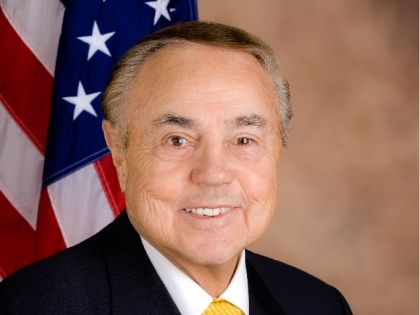
Senator Onorato Expresses Dismay At Weak Federal Regulations To Curb Power Plant Mercury Emissions
State Senator George Onorato (D-Queens), who wrote twice to the federal Environmental Protection Agency (EPA) last year to encourage the adoption of strict new rules to reduce power plant mercury emissions, is deeply disappointed that new EPA regulations announced on Monday "place the economic concerns of polluters over the need to protect the public health."
In light of the weak federal rules, which allow for a "cap and trade" program permitting dirtier plants to purchase pollution credits instead of reducing emissions, the Queens lawmaker is calling on Governor Pataki to implement in-state regulations to protect New York’s environment and citizens from exposure to the toxic effects of mercury. Known as a potent neurotoxin, mercury exposure presents a particular threat to children and pregnant women.
In a letter to the Governor, Senator Onorato noted that he was "heartened to learn that New York State Department of Environmental Conservation (DEC) Acting Commissioner Denise Sheehan has roundly denounced the (EPA) regulations," describing them as "unacceptable and unwarranted."
Continuing, Senator Onorato wrote, "As one of many legislators, environmental advocates and members of the public who repeatedly protested the EPA’s draft mercury control regulations in 2004, and as the representative of an area which is already inundated with power plants, I am writing to urge that your administration now take action to place stringent in-state curbs on power plant mercury emissions." In the absence of strict federal emissions rules, he added, "New York must step up to the plate."
The EPA’s so-called "Clean Air Mercury Rules" are supposed to cut power plant mercury emissions nationwide from 48 tons per year to about 15 tons annually by 2025. In contrast, the mercury emissions proposal advanced by the Clinton administration would have cut power plant emissions by 90 percent by the end of this decade.
"Mercury emissions from power plants have polluted our air and our water, and present a significant public health risk to New Yorkers," said Senator Onorato, a member of the State Senate Standing Committee on Energy and Telecommunications. "I hope that New York, which is such an environmental leader in so many ways, will take action on its own to reduce mercury emissions within our state’s borders and serve as an example to neighboring states."
- 30 -
Note to Editors
: To view Senator Onorato’s April, 2004 press release on this issue, please visit this link.